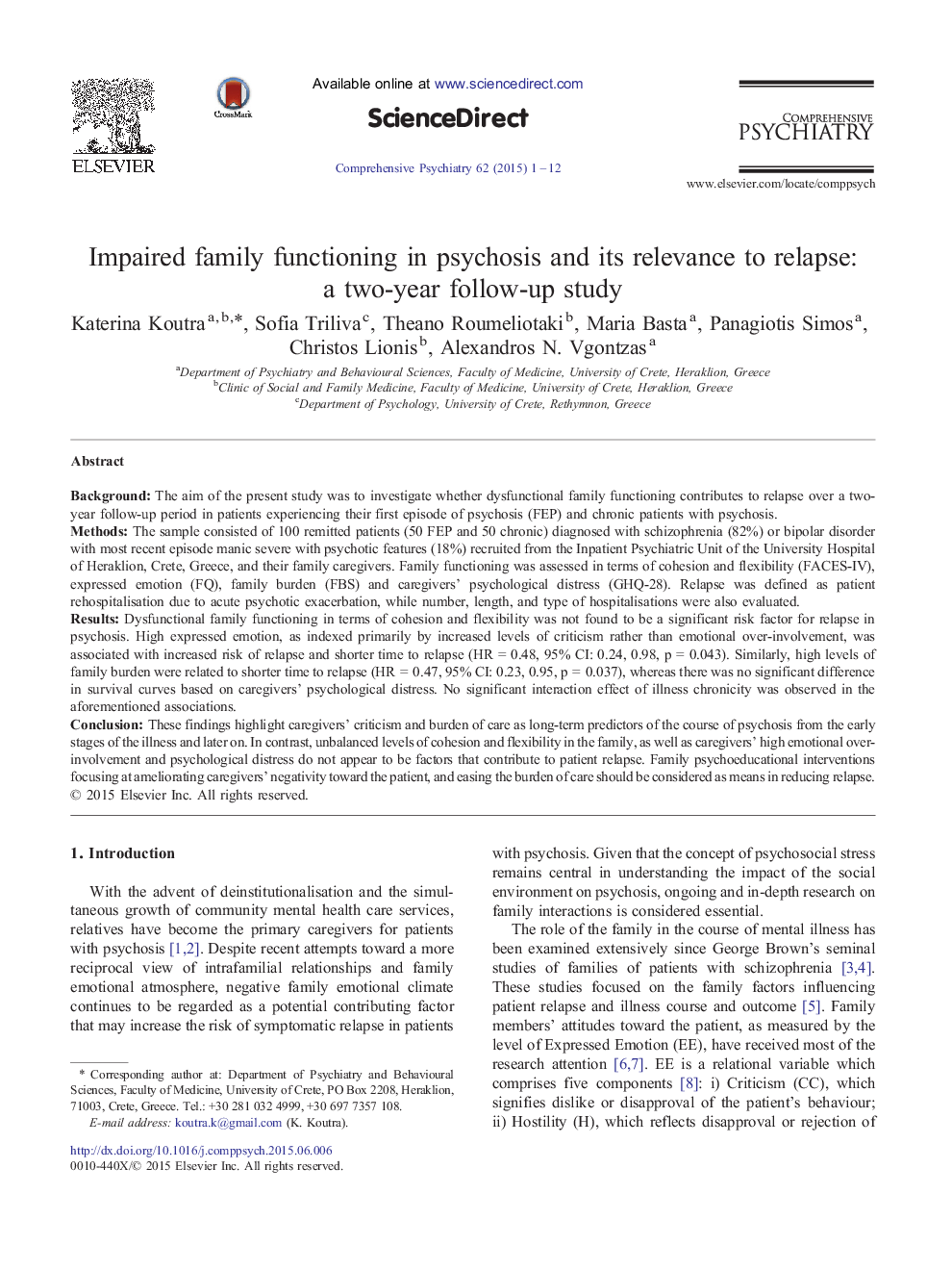| کد مقاله | کد نشریه | سال انتشار | مقاله انگلیسی | نسخه تمام متن |
|---|---|---|---|---|
| 317960 | 538256 | 2015 | 12 صفحه PDF | دانلود رایگان |
BackgroundThe aim of the present study was to investigate whether dysfunctional family functioning contributes to relapse over a two-year follow-up period in patients experiencing their first episode of psychosis (FEP) and chronic patients with psychosis.MethodsThe sample consisted of 100 remitted patients (50 FEP and 50 chronic) diagnosed with schizophrenia (82%) or bipolar disorder with most recent episode manic severe with psychotic features (18%) recruited from the Inpatient Psychiatric Unit of the University Hospital of Heraklion, Crete, Greece, and their family caregivers. Family functioning was assessed in terms of cohesion and flexibility (FACES-IV), expressed emotion (FQ), family burden (FBS) and caregivers’ psychological distress (GHQ-28). Relapse was defined as patient rehospitalisation due to acute psychotic exacerbation, while number, length, and type of hospitalisations were also evaluated.ResultsDysfunctional family functioning in terms of cohesion and flexibility was not found to be a significant risk factor for relapse in psychosis. High expressed emotion, as indexed primarily by increased levels of criticism rather than emotional over-involvement, was associated with increased risk of relapse and shorter time to relapse (HR = 0.48, 95% CI: 0.24, 0.98, p = 0.043). Similarly, high levels of family burden were related to shorter time to relapse (HR = 0.47, 95% CI: 0.23, 0.95, p = 0.037), whereas there was no significant difference in survival curves based on caregivers’ psychological distress. No significant interaction effect of illness chronicity was observed in the aforementioned associations.ConclusionThese findings highlight caregivers’ criticism and burden of care as long-term predictors of the course of psychosis from the early stages of the illness and later on. In contrast, unbalanced levels of cohesion and flexibility in the family, as well as caregivers’ high emotional over-involvement and psychological distress do not appear to be factors that contribute to patient relapse. Family psychoeducational interventions focusing at ameliorating caregivers’ negativity toward the patient, and easing the burden of care should be considered as means in reducing relapse.
Journal: Comprehensive Psychiatry - Volume 62, October 2015, Pages 1–12
